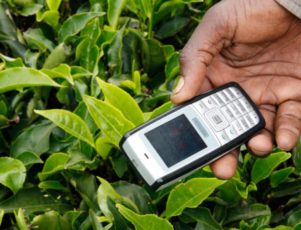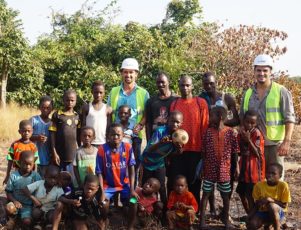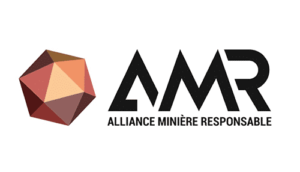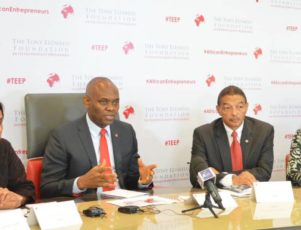Nigeria has massive potential for innovative tech start-ups, although there are numerous obstacles in their way.
While it is officially Africa’s biggest economy, the Nigerian nation is struggling. Talk of a recession has darkened the horizon for over a year. The slump of global oil prices has been a hammer blow to the country, while terrorism and oil refinery problems have worsened the situation. Nigeria is currently beholden to oil for 70% of its revenues; it must rebalance its economy to unbind itself from market volatility. The country realizes this, and is making an effort to diversify its revenue sources. Many are starting to look toward innovative start-ups to take the country in a new direction.
Big tech potential in Nigeria, Konga leads the way
The conditions in Nigeria are rife for daring tech start-ups to create new solutions and drive growth. Unlike other regions on the continent, Nigeria has high rates of mobile penetration with approximately 75% percent of its 175 million people using mobile phones and data services, making it the largest mobile market in Africa. However, this market is currently woefully underexploited. According to a 2013 report by consultancy firm McKinsey, only 1.5% of the country’s $500 billion economy took place online. This void presents a glaring opportunity for tech start-ups to create revolutionary new services.
Konga, is one such start-up that seized the initiative. Launched in 2012, Konga was an early pioneer in Nigeria’s tech space, offering online retail services. Today the company is thriving, offering a range of original solutions, which have connected all manner of suppliers and manufacturers to consumers across the country. Other innovators are also following Konga’s lead, carving out their own niche in Nigeria. However for every success, many start-ups struggle to overcome barriers in their way.
Unusual obstacles: reluctance and electricity
The issues facing start-ups vary. Some are complicated while some are frustratingly mundane. One simple yet formidable roadblock that start-ups face is the availability of electricity. For a new business trying to carve its own niche in the ecommerce space, a reliable energy supply is essential. However, when energy supply is unreliable, as it often is in Nigeria, a start-up has to generate its own power and purchase alternative fuel sources in order to consistently operate. Ultimately, this can lead to greatly increased costs which squeeze margins, snuffing the life out of promising but cash-strapped startup ventures.

KongaPay launch
On the whole, Nigerians are still very wary about parting with their money over the internet, for fear of their capital or financial information being stolen. This paranoia is not entirely without merit, as Nigeria is a hotspot for online scamming and phishing schemes. In order to accommodate these fears, some successful start-ups such as Konga and Jumia have built cash-only payment methods into their business. Konga has also recently created a payment system called KongaPay whereby money is held securely until orders are delivered. Despite these efforts, reticence remains. While some start-ups have survived, this reluctance has certainly deterred some consumers from using new services, reducing the customer base that new start-ups rely on for growth. Tech firms must realize they need to foster a safe and reliable online payment environment, and convince the masses to use it.
Investment is needed, although so is caution
New accelerator programs sponsored by large foreign entities are helping more start-ups get off the ground, especially in the Fintech space. However, Nigerian banks aren’t traditionally interested in providing loans to risky start-up ventures, and encourage start-ups to attract private equity investors instead. Fortunately, foreign private equity is really starting to pick up in Africa, with more and more investors willing to take a punt on a good idea. Regrettably, these investors sometimes undervalue Nigerian enterprises, and strong-arm inexperienced Nigerians into unfavorable deals.
Other issues such as the country’s poor logistics system can bring woe to start-ups who rely on delivering a physical product. Sometimes the lack of skills in critical areas such as accounting and marketing can kill a promising tech business before it can get off the ground. In other instances, eager entrepreneurs try to make an idea that has worked elsewhere work in Nigeria; without analysis and adaptation this often leads to the graveyard.
A veritable gauntlet of obstacles faces Nigerian start-ups. However, those that have survived are serving as a shining example to those that wish to follow. Success is more likely if a fledgling firm is aware of the pitfalls ahead, provided they have a great idea, a solid business plan and the business acumen to make it all come together.









 “With the Responsible Mining Alliance, we wanted to show that you can do mining differently,” declared Romain Girbal in February 2016 when asked about the philosophy of AMR on French business channel BFM. With this credo in mind, the two young French entrepreneurs set up shop in Guinea, persuaded of the enormous potential of mining in this emerging country. The Responsible Mining Alliance now holds a bauxite mining permit in Boké, in the northwest of the country.
“With the Responsible Mining Alliance, we wanted to show that you can do mining differently,” declared Romain Girbal in February 2016 when asked about the philosophy of AMR on French business channel BFM. With this credo in mind, the two young French entrepreneurs set up shop in Guinea, persuaded of the enormous potential of mining in this emerging country. The Responsible Mining Alliance now holds a bauxite mining permit in Boké, in the northwest of the country. The high standards Girbal has set for his project have attracted outside attention as well: in January 2016, Xavier Niel, the famous French billionaire and boss of telecom operator Free, decided to invest in the Responsible Mining Alliance via his personal holding company NJJ Capital. This was a big publicity win for the young mining company, and other well-known investors and partners have since joined the adventure. These include Anne Lauvergeon, ex-CEO of Areva; Edouard Louis-Dreyfus, head of Louis Dreyfus Shipowners; Alain Mallart, head of Energipole; and Daniel Lebard, head of ISPG. Not to mention Arnaud Montebourg, the former French Minister of the Economy, who worked his network to support the young French entrepreneurs’ project. In addition, the well-known French business journal
The high standards Girbal has set for his project have attracted outside attention as well: in January 2016, Xavier Niel, the famous French billionaire and boss of telecom operator Free, decided to invest in the Responsible Mining Alliance via his personal holding company NJJ Capital. This was a big publicity win for the young mining company, and other well-known investors and partners have since joined the adventure. These include Anne Lauvergeon, ex-CEO of Areva; Edouard Louis-Dreyfus, head of Louis Dreyfus Shipowners; Alain Mallart, head of Energipole; and Daniel Lebard, head of ISPG. Not to mention Arnaud Montebourg, the former French Minister of the Economy, who worked his network to support the young French entrepreneurs’ project. In addition, the well-known French business journal 







